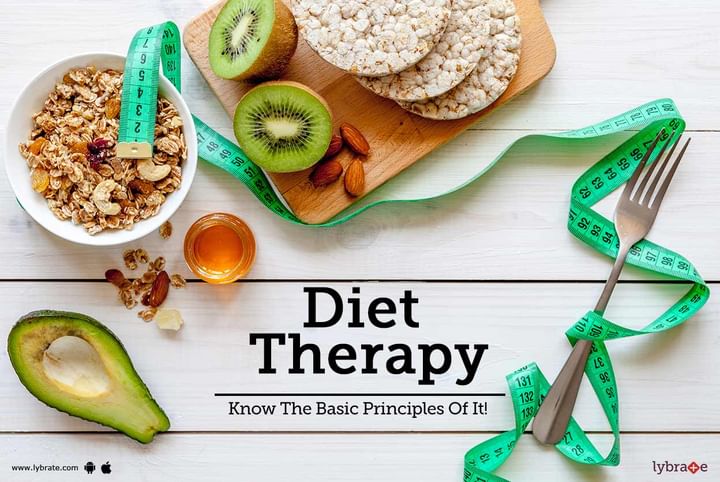Get the App
For Doctors
Login/Sign-up
Last Updated: Jan 10, 2023
BookMark
Report
Diet Therapy - Know The Basic Principles Of It!
Dt. Suraksha Shetty ShahDietitian/Nutritionist • 21 Years Exp.Diploma In Nutrition & Health Education
Diet therapy is a strategy for eating the food prescribed by a doctor to improve health and wellbeing. Medications involve including foods that enhance particular health conditions while evading foods that may aggravate the condition. Some health conditions require temporary helpful eating routines. Dietitians regularly detail helpful eating methodologies. The eating routine may change after some time in view of the individual's reaction and change in well-being status.
The different types of diet therapies are as follows:
- A sans gluten diet is a case of a dietary change that you should keep up to stay solid. Individuals with a gluten narrow-mindedness must maintain a strategic distance from gluten-containing food to divert harm to their digestion tracts.
- The diabetic diet is an extremely basic remedial diet including restricting high-sugar foods to control glucose levels.
- Other remedial weight control diets constrain foods, for example, salt, to control pulse, or soaked fat, to oversee cholesterol. These sorts of weight control plans take some getting used to. Your doctor will work with you to roll out the importance.
Here are some basic principles of diet therapy:
- Side effect Control: When you are experiencing a disease brought on by a horrible eating routine, your specialist may recommend you to consume fewer calories before considering diet therapy, physician endorsed medications or surgery. Certain conditions, for example, heart diseases can be overseen all the more viable when the diet is under control. Your specialist may even recommend you to consume fewer calories treatment essentially on the grounds that he sees you have warnings for heart illness, regardless of the possibility that you are not as of now diagnosed with any.
- Eat fewer carbs Modification: When you enjoy unfortunate dietary patterns, such as picking greasy nourishments, eating an excessive number of sweats or maintaining distance from vegetables, you put yourself at risk for genuine medical issues. After surveying your diet and the risks associated with it, your specialist may propose an adjusted eating routine. It is essential that in case that you get a kind of prescription and routine from your specialist, you finish as you would a professionally prescribed medicine. Changes to your eating regimen can happen in little and straightforward ways yet have a major effect on your health.
- Organ Rest: When you are going to experience a surgery or your specialist is hoping to confine medical issues, you might be requested to abstain from diet therapy to offer a clearer photo of your health challenges or to help the surgery go all the more easily. A few specialists will ask you to go on a liquid diet or delicate eating routine, which can allow weak organs to rest in the digestive system. Therefore, try to eat light foods.
In case you have a concern or query you can always consult an expert & get answers to your questions!



+1.svg)
